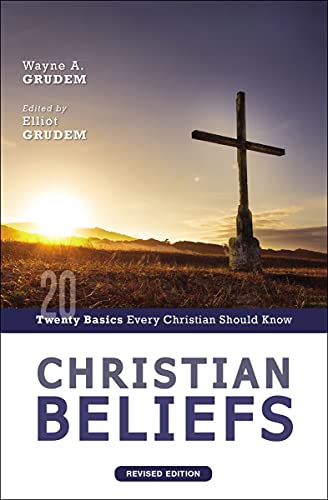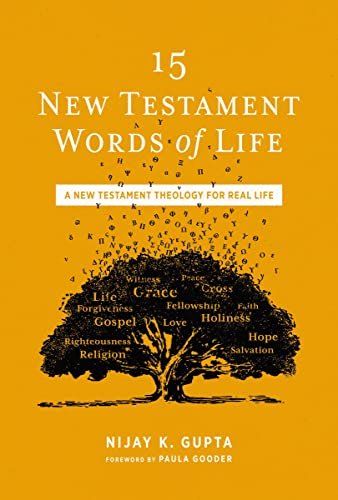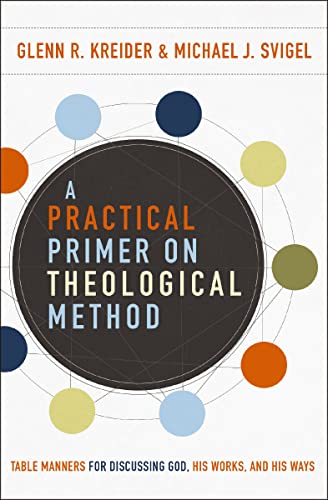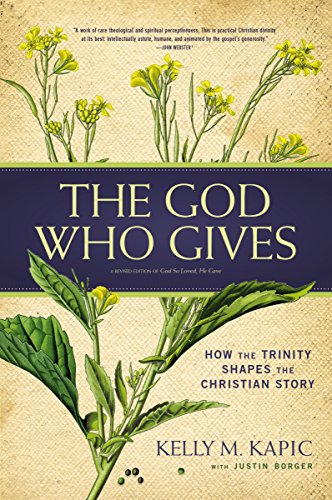Join our list
Subscribe to our mailing list and get interesting stuff and updates to your email inbox.

Publisher: Zondervan Academic
Price: $2.99 (Ends Dec 31)
Who was Jesus?
Historical sources portray a person who was complex, multi-layered, and often contradictory to the tidy portrait that much of modern Christianity paints him as. Even the gospel accounts render him as both judge and healer, teacher and temple, servant and savior.
A Doubter’s Guide to Jesus is a persuasive and often challenging investigation into the historical figure found in the earliest sources. These sources, which include references both direct and indirect—from Roman, Jewish, and Christian accounts—offer us more than simple evidence that Jesus existed; they begin to form a picture that is both deeply credible and profoundly counterintuitive.
Each chapter explores the evidence for a different aspect of the most influential figure in human history, exploring:

Publisher: Zondervan Academic
Price: $1.99 (Nov 2 Only)
The Ten Commandments have influenced non-religious Western culture more than it might imagine. This guide to the famous rules does more than explain what they are or what they say, but why we need them.
This moral code in the Old Testament of the Bible—from which sprang ideas of justice, compassion, human rights, and freedom—has had such a strong impact on our society that it seems to represent what most of us think of as basic ethical reasoning. Even atheists like Richard Dawkins have offered up their own version of the Ten Commandments, and the strange thing is that many of them don’t stray very far from the ethical teachings of Moses and Jesus.
Bestselling author and apologist John Dickson explores how these ten rules have changed our world and how they show us what the “Good” (as Socrates called it) looks like in practice. Whether or not one believes in the Bible, these ten ancient instructions open a window to Western thought and civilization—and to our own souls.

Publisher: Zondervan Academic
Price: $1.99 (Ends Oct 1)
Learn the Teachings of the Bible that Every Christian Must Know.
Now Revised and Updated. Over 300,000 Copies Sold!
Not every Christian needs to go to seminary, but there are certain teachings of the Bible that every Christian should know. Whether you’re a relatively new believer in Jesus or a mature Christian looking for a better understanding of basics of the faith, Christian Beliefs is for you.
This readable guide to twenty basic Christian beliefs condenses Wayne Grudem’s award-winning book Systematic Theology, prized by pastors and teachers everywhere. He and his son, pastor Elliot Grudem, have boiled down the essentials of theology for everyday Christians and made them both clear and applicable to life. Each brief chapter concludes with questions for personal review or group discussion.

Publisher: Zondervan Academic
Price: $1.99
In 15 New Testament Words of Life, biblical scholar Nijay Gupta explores some of the most important New Testament words:
Righteousness
Gospel
Forgiveness
Life
Cross
Faith
Grace
Fellowship
Hope
Salvation
Peace
Religion
Holiness
Love
Witness

Publisher: Zondervan Academic
Price: $3.99 (Ends Sept 30)
A “how-to” manual for doing theology, and a handbook of etiquette for doctrinal discussions with other believers.
Around a table sit men and women with distinct roles: The Interpreter, the Theologian, the Virtuous, the Philosopher, the Scientist, the Artist, the Minister, and the Historian. Each is ready to engage in a passionate discussion centered on God, his works, and his ways. Regardless of which role you play at the same table, you’re invited. You simply need to pull up a chair and join the conversation. But how? What do you say when you take your seat? Where do you start? What are the “rules” of the dialogue?
A Practical Primer on Theological Method will help you answer these questions. This primer is not only a “how-to” manual for doing theology, but a handbook of etiquette for doctrinal discussions with other believers. This popular-level introductory text presents the proper manner, mode, and means of engaging fruitfully in theology.

Publisher: Zondervan Academic
Price: $3.99
Many Christians wonder what the Christian life is all about. They hear about “grace” but struggle to rightly understand it, much less live it. They are taught about God, but their vision of him does not always reflect the full biblical portrait of the Father, Son, and Holy Spirit. When this happens Christians struggle to know the ways of God and how to joyfully participate in his work.
The God Who Gives provides a compelling vision of Christian faith and life, helping readers discover the uniqueness of the gospel—that God’s kingdom comes not by taking, but by giving—God gives Himself! We are invited into the fullness of life that can only come through the gift of God’s divine generosity.
Taking readers through the grand biblical narrative of creation, fall, redemption, and kingdom author Kelly M. Kapic helps us see our story in and through the story of Scripture. He shows that everything belongs to God, and yet because of our turning and taking from him we experience a kind of suffocating bondage to sin. So how does God reclaim us? God gives again. The God who gave in creation restores by recreating us through his Son and by his Spirit. The kingdom of God is an overflowing measure of divine generosity that we are invited to participate in.

Publisher: Zondervan Academic
Price: $3.99
For the Spirit, being somewhat forgotten is an occupational hazard. The Holy Spirit is so actively involved in our lives that we can take his presence for granted. As they say, familiarity breeds contempt. Just as we take breathing for granted, we can take the Holy Spirit for granted simply because we constantly depend on him. Like the cane that soon feels like an extension of the blind man’s own body, we too easily begin to think of the Holy Spirit as an extension of ourselves.
Yet the Spirit is at the center of the action in the divine drama from Genesis 1:2 all the way to Revelation 22:17. The Spirit’s work is as essential as the Father’s and the Son’s, yet the Spirit’s work is always directed to the person and work of Christ. In fact, the efficacy of the Holy Spirit’s mission is measured by the extent to which we are focused on Christ. The Holy Spirit is the person of the Trinity who brings the work of the Father, in the Son, to completion. In everything that the Triune God performs, this perfecting work is characteristic of the Spirit.
In Rediscovering the Holy Spirit, author, pastor, and theologian Mike Horton introduces readers to the neglected person of the Holy Spirit, showing that the work of God’s Spirit is far more ordinary and common than we realize. Horton argues that we need to take a step back every now and again to focus on the Spirit himself—his person and work—in order to recognize him as someone other than Jesus or ourselves, much less something in creation. Through this contemplation we can gain a fresh dependence on the Holy Spirit in every area of our lives.


